Guidelines For Bandipur and Mudumalai Safari
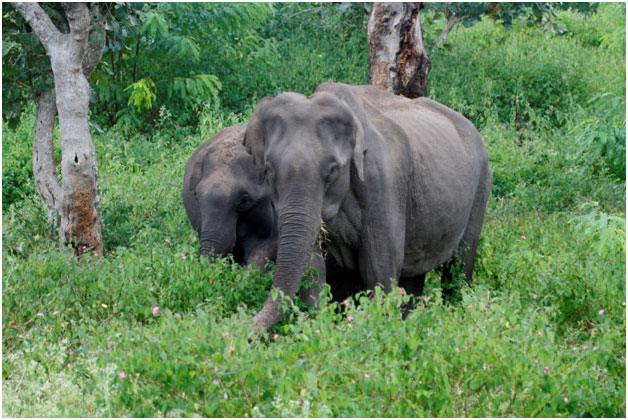
Tips On Increasing Wildlife Sighting Chances During Safari at Bandipur Mudumalai
Increasing wildlife sighting chances during a safari requires a combination of factors, including choosing the right location, timing, and employing good observation techniques. Here are some tips to help you increase your chances of spotting wildlife during your safari:
- Choose the right season and time: Research the best time to visit the specific safari destination you’re interested in. Many wildlife species are more active during certain seasons, such as the dry season when animals gather around water sources. Early morning and late afternoon are also prime times for wildlife viewing as many animals are more active during these cooler hours.
- Select the right safari start location: Some safari points are more famous for their wildlife populations than others. Do your research and choose a destination known for abundant and diverse wildlife.
- Hire experienced guides: A knowledgeable and experienced safari guide can make a significant difference in your wildlife sightings. They know the area, animal behavior, and how to track animals effectively.
- Use specialized vehicles: Opt for open-sided safari vehicles that provide better visibility and the flexibility to move around for better viewing angles.
- Be patient: Wildlife sightings are not always immediate. Be patient, and give yourself enough time to explore the area. Sometimes you might have to wait in one spot quietly to allow animals to approach without feeling threatened.
- Stay quiet and still: Avoid making loud noises and sudden movements that might scare away the wildlife. Animals are more likely to go about their natural activities if they don’t feel threatened.
- Respect the animals’ space: Keep a safe distance from wildlife and avoid getting too close. This not only protects the animals but also ensures your safety.
- Bring binoculars and a camera: Binoculars can help you spot animals at a distance, and a camera will allow you to capture those memorable moments.
- Use local knowledge: Engage with local guides or trackers who have extensive knowledge of the area and animal behavior.
- Learn to recognize animal signs: Tracks, droppings, and other signs can help you identify where certain animals might be located.
- Choose less crowded times: If possible, avoid peak tourist seasons when safari areas may be crowded. Fewer people mean fewer disturbances to the animals.
- Participate in night drives or walks: Some safari lodges and camps offer night drives or guided walks, providing an opportunity to spot nocturnal animals and experience a different aspect of wildlife.
Remember, wildlife sightings are not guaranteed, as animals are wild and can be unpredictable. However, following these tips will increase your chances of having a memorable and rewarding safari experience at Bandipur national park. Always prioritize the well-being and conservation of the animals and their natural habitat during your safari adventure.
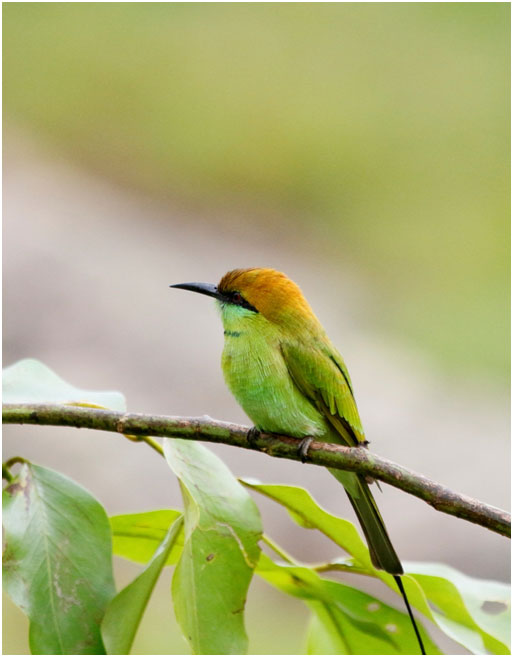
Rules To Follow During a Jungle Safari at Bandipur and Mudumalai
During a wildlife jungle safari in Bandipur and Mudumali, it is essential to follow certain rules and guidelines to ensure the safety of both visitors and the animals, as well as to preserve the natural environment. Here are some important rules to follow during a wildlife jungle safari:
- Stay inside designated vehicles or marked paths: Do not get out of the safari vehicle unless instructed by your guide. The animals may perceive humans on foot as threats and act defensively.
- Keep a safe distance from wildlife: Always maintain a safe distance from the animals. Getting too close can stress or provoke them, leading to dangerous situations.
- Keep noise to a minimum: Avoid making loud noises or sudden movements that may frighten the animals or disturb their natural behavior.
- Do not feed the animals: Feeding wild animals can alter their natural diet and behavior, and it may also be harmful to their health.
- Do not litter: Keep the jungle clean by not leaving any trash behind. Take all your waste back with you and dispose of it responsibly.
- Follow the guide’s instructions: Listen to your safari guide’s instructions and adhere to their advice at all times. They are trained to ensure your safety and the well-being of the wildlife.
- Do not harass or provoke animals: Avoid attempting to interact with or provoke the animals in any way. Respect their space and observe them from a distance.
- No smoking: Smoking can be a fire hazard in dry areas, and the smell of tobacco may disturb some wildlife.
- Stay seated while the vehicle is moving: For your safety, remain seated during the safari, especially when the vehicle is in motion.
- Do not pick plants or disturb the environment: The jungle ecosystem is delicate, so avoid picking plants, flowers, or disturbing the natural environment.
- Do not use flash photography: Flash photography can startle and disturb animals, especially during nighttime safaris.
- Be patient and quiet: Stay patient and calm during the safari. Sometimes wildlife sightings require time and silence.
- Respect local customs and traditions: Be mindful of local customs and traditions of the area you are visiting, and show respect to the local communities.
- Do not chase or block the animals’ path: Do not follow or chase animals in an attempt to get a better view. Allow them to move freely and undisturbed.
Remember that a wildlife jungle safari in Babdipur is about experiencing animals in their natural habitat, and it’s crucial to act responsibly and respectfully towards them. By following these rules, you contribute to the conservation of the environment and the well-being of the wildlife you encounter.
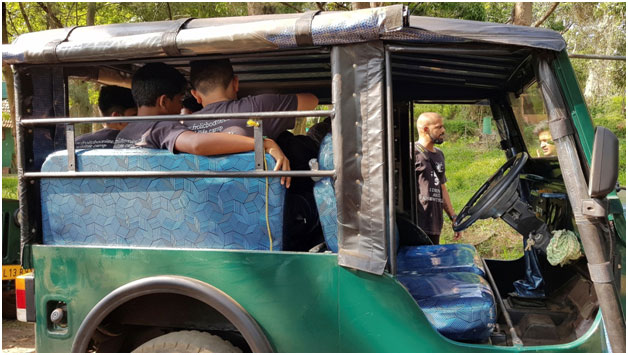
What to pack for a jungle safari in Bandipur and Mudumalai ?
Packing for a jungle safari requires careful consideration of the destination, climate, and specific requirements of the safari operator. Here is a general packing list to help you prepare for a jungle safari:
- Clothing:
- Lightweight, breathable, and neutral-colored clothing (long-sleeved shirts and long pants to protect against insects and sun exposure).
- A wide-brimmed hat or cap for sun protection.
- Comfortable closed-toe shoes or hiking boots suitable for walking on uneven terrain.
- Sandals or flip-flops for wearing around the campsite or lodge.
- A light rain jacket or poncho (if visiting during the rainy season).
- Sweater or light jacket for cool evenings and early mornings.
- Insect Repellent:
- High-quality insect repellent with DEET or other effective ingredients to protect against mosquitoes and other insects.
- Sun Protection:
- Sunscreen with a high SPF to protect against strong sun rays.
- Sunglasses with UV protection.
- Personal Items:
- Passport, travel documents, and any necessary visas.
- Prescription medications and a basic first aid kit (including bandages, antiseptic cream, and any specific medications you require).
- Personal toiletries and hand sanitizer.
- Wet wipes or tissues.
- Binoculars and Camera Equipment:
- Binoculars for wildlife spotting.
- Camera with extra batteries and memory cards for capturing memorable moments.
- Backpack or Daypack:
- A small backpack to carry your essentials during safari outings.
- Water and Snacks:
- Stay hydrated by carrying a reusable water bottle or hydration pack.
- Some non-perishable snacks like energy bars or nuts to keep you energized during the safari.
- Flashlight or Headlamp:
- A flashlight or headlamp with spare batteries for nighttime activities.
- Power Bank and Charging Cables:
- A power bank to charge your electronic devices during power outages in remote areas.
- Bin Liners or Dry Bags:
- Keep your belongings dry during rain or river crossings by using waterproof bin liners or dry bags.
- Personal Items:
- Any personal items you might need, such as reading material, travel journal, or sketchbook.
- Respectful Clothing (if applicable):
- If you’re visiting a conservative area or a wildlife sanctuary, consider packing modest clothing out of respect for local customs.
Always check with your safari operator for any specific recommendations or requirements they may have. Keep your packing light and practical, as you’ll likely be moving between different locations during your safari. Additionally, respect local regulations and customs to ensure a positive and responsible safari experience.
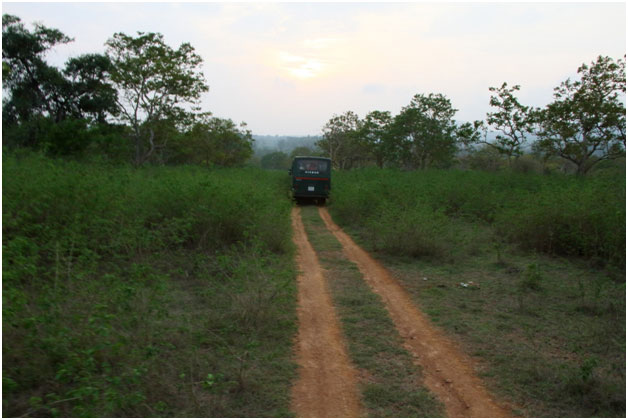
Why It’s Important to Remain Silent During Safari?
Remaining silent during a safari at Bandipur and Mudumali is essential during safari for several reasons, all of which contribute to a more successful and responsible wildlife viewing experience. Here are some key reasons why silence is crucial during a safari:
- Minimizing Disturbance: Wildlife is generally sensitive to human presence and can be easily startled by loud noises or sudden movements. Remaining silent helps minimize disturbance to the animals, allowing them to go about their natural behaviors without feeling threatened.
- Enhancing Wildlife Encounters: By staying quiet, you increase your chances of observing wildlife in their natural habitat. Animals are more likely to emerge from hiding or approach closer to the safari vehicle if they feel safe and undisturbed.
- Hearing Natural Sounds: Silence allows you to hear the natural sounds of the jungle, such as bird calls, animal vocalizations, and rustling leaves. These auditory cues can lead you to wildlife that might otherwise go unnoticed.
- Safety: In some situations, loud noises or sudden movements can trigger defensive behaviors in animals. Certain species, such as elephants or predators, may perceive noise as a threat, potentially leading to dangerous encounters.
- Respect for Wildlife: Maintaining silence is a sign of respect for the wildlife and their habitat. It acknowledges that you are a visitor in their territory and that you are there to observe, not disrupt, their lives.
- Better Photography and Observation: Silence allows photographers and wildlife enthusiasts to focus better on their observations and capture clear, unobstructed images of animals in their natural surroundings.
- Enhanced Guide Communication: Safari guides often communicate with each other through hand signals or soft whispers to share information about wildlife sightings. Being silent allows them to exchange important information without disturbing the animals.
- Learning from the Environment: Silence allows you to be more attentive to the natural environment and increases your chances of spotting signs of wildlife, such as tracks, droppings, or movement in the distance.
- Enhancing the Overall Experience: Enjoying the serenity of the wilderness and immersing yourself in the sounds of nature can be a deeply enriching experience during a safari.
Remember that wild animals should never be provoked or intentionally approached. Observing wildlife from a safe and respectful distance is crucial for both your safety and the well-being of the animals. Following these guidelines and maintaining silence during a safari contributes to responsible wildlife tourism and helps in the conservation of natural habitats and the animals that inhabit them.
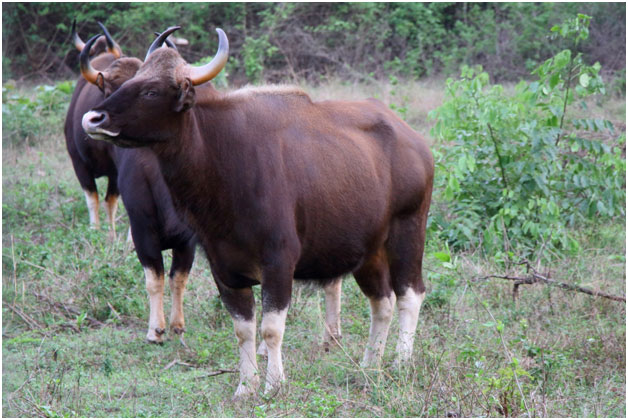
Animals Reptiles and Birds You are likely to sight during your safari at Bandipur
Bandipur National Park, located in the southern state of Karnataka, India, is a renowned wildlife sanctuary known for its diverse flora and fauna. During a safari in Bandipur, you can expect to encounter a variety of animals, reptiles, and birds. Here are some of the notable species you might see:
Animals:
- Asian Elephants: Bandipur is famous for its population of majestic Asian elephants, and you are likely to spot them during your safari.
- Indian Gaurs (Indian Bison): These massive herbivores are one of the main attractions of Bandipur, and they roam freely throughout the park.
- Spotted Deer (Chital): These beautiful deer with white spots are commonly seen in Bandipur and are an important prey species for predators.
- Sambar Deer: The largest species of deer in India, the Sambar, is also present in good numbers in Bandipur.
- Wild Boars: These sturdy creatures are often seen foraging in the grasslands and forests of Bandipur.
- Sloth Bears: While elusive, Bandipur is home to a population of sloth bears, and if you’re lucky, you might catch a glimpse of them.
- Indian Leopards: Though secretive and stealthy, Bandipur is known for its leopard population, and with patience and luck, you might spot one.
- Striped Hyenas: These scavengers are present in Bandipur, but sightings are relatively rare due to their nocturnal habits.
Reptiles:
- Indian Rock Python: Bandipur is home to various snake species, including the Indian Rock Python, one of the largest snakes in the world.
- Common Indian Monitor Lizard: These large lizards are often seen basking in the sun or searching for food.
- Russell’s Viper and other snakes: Several venomous snake species inhabit Bandipur, including the Russell’s Viper and Indian Cobra.
Birds: Bandipur National Park is a haven for birdwatchers, with over 200 species of birds recorded. Some of the prominent ones include:
- Malabar Pied Hornbill
- Indian Roller
- Peafowl (Indian Peacock)
- Crested Serpent Eagle
- Malabar Trogon
- Indian Grey Hornbill
- Changeable Hawk-Eagle
- Grey Junglefowl
Please note that wildlife sightings are not guaranteed, as animals are wild and can be unpredictable. The best chance of spotting various species is to hire an experienced guide and be patient during your safari. Also, remember to maintain a safe distance and respect the animals’ space to ensure their well-being and the safety of all visitors.



